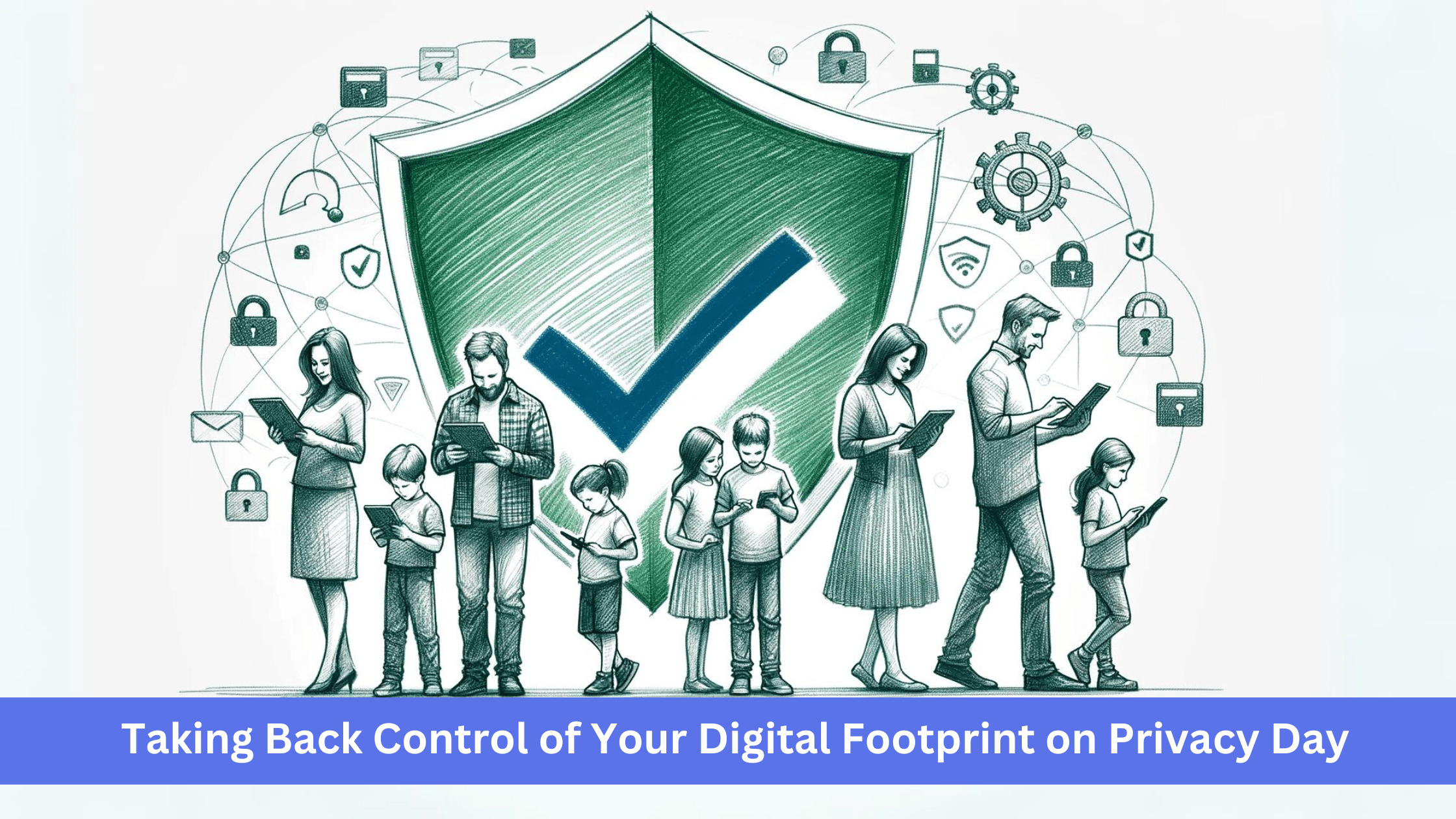In an era where our digital footprint is as significant as our physical presence, the importance of data privacy cannot be overstressed. Every day, countless individuals fall prey to cyber threats due to inadequate privacy measures. Issues range from unencrypted DNS queries that expose browsing habits, to invasive trackers that profile your internet behavior. Additionally, weak passwords and oversharing on social media further exacerbate the risks.
Imagine a world where your every online move is tracked, your personal information is just a password away from being stolen, and your shared posts are used against you. This is not a dystopian future; it’s the reality of today’s internet landscape. Without proper measures, your sensitive information could be exposed or misused, leading to potential identity theft, financial loss, or personal harm.
Navigating the Web Privately: How DNS Encryption Protects You
In today’s digital age, one of the most overlooked aspects of online privacy is the vulnerability of DNS requests. Every time you visit a website, a DNS request is made, translating the website name into a computer-readable IP address. This process, by default, is unencrypted, leaving a trail of your online activities visible to anyone on the same network, including internet service providers (ISPs). This exposure poses a significant privacy concern as ISPs can potentially log and track these websites, building a profile of your browsing habits.
Imagine the discomfort of knowing that your online activities, from the news sites you visit to the items you shop for, are being tracked and potentially analyzed or sold to advertisers. This lack of privacy not only intrudes on your personal space but can also lead to targeted advertising and a feeling of being constantly watched.
To counter this, encrypting your DNS requests is crucial. Solutions like Cybird offer robust DNS encryption, ensuring that your browsing habits remain private and secure. Cybird’s technology encrypts the connection between your device and their DNS servers, making it impossible for outsiders to see your DNS queries. This encryption shields your internet activities from prying eyes, maintaining your online privacy.
Other notable solutions include Quad9, NextDNS, and OpenDNS, each offering unique features to enhance your digital security. Quad9 not only encrypts your DNS requests but also blocks access to known malicious domains, adding an extra layer of security. NextDNS offers customizable filtering options, allowing you to control your internet experience more granularly. OpenDNS, known for its speed and reliability, provides additional features like phishing protection and content filtering.
By adopting these DNS encryption services, you are taking a significant step towards safeguarding your online privacy. It’s a simple yet effective way to ensure that your internet browsing remains a personal and private activity, free from unwanted surveillance and tracking. In the fight for digital privacy, securing your DNS requests is a powerful weapon, one that puts control back in your hands and keeps your online life confidential.
Action Steps for DNS Encryption
- Research and choose a DNS encryption service like Cybird, Quad9, NextDNS, or OpenDNS.
- Follow their setup instructions to configure your devices for encrypted DNS queries.
Stop Being Tracked: A Guide to Blocking Ads and Trackers
Internet tracking through ads and trackers is a widespread issue that significantly compromises online privacy. When you browse the web, numerous sites install cookies and trackers that monitor your activities. These trackers collect data on your browsing habits, which advertisers then use to target you with personalized ads. For instance, after searching for a product online, you might notice ads for that product appearing on various websites you visit later. This not only feels intrusive but also indicates a loss of control over your personal data.
Addressing this issue requires effective ads and tracker blocking. Solutions like Cybird offer robust tools to block these invasive trackers, safeguarding your internet behavior from unwanted surveillance. By using Cybird, you can browse the web without the concern of being constantly monitored and profiled for advertising purposes.
In addition to Cybird, there are other tools like Adblock Plus, Ghostery, and uBlock Origin, each providing unique features to enhance your online privacy. Adblock Plus is known for its user-friendly interface and customizable filters, while Ghostery offers detailed insights into the trackers on each website, giving you more control over what to block. uBlock Origin is praised for its efficiency and low impact on system resources.
Implementing these ad and tracker blocking tools significantly reduces the likelihood of your online activities being monitored and used for targeted advertising. It’s a crucial step towards reclaiming your digital privacy, ensuring that your browsing experience remains personal and private. In an era where digital tracking is pervasive, taking proactive measures to block ads and trackers is essential for maintaining control over your personal data.
Action Steps for Blocking Ads and Trackers
- Select an ad and tracker blocking tool such as Cybird, Adblock Plus, Ghostery, or uBlock Origin.
- Install the chosen tool as an extension in your web browser.
- Customize the settings to suit your privacy needs.
The First Line of Defense: Strong Passwords for Digital Security
The vulnerability of online accounts due to weak passwords is a widespread and critical issue in the realm of digital security and privacy. Many individuals still rely on simple, easily guessable passwords for their online accounts, leaving them susceptible to cyber-attacks. For example, using a basic password like ‘password123’ can be easily cracked by hackers using common techniques like brute-force attacks. This vulnerability can lead to unauthorized access to personal accounts, resulting in data breaches, identity theft, or financial loss.
To mitigate this risk, the use of strong, complex passwords is imperative. A strong password typically includes a mix of upper and lower-case letters, numbers, and special characters, making it difficult for attackers to decipher. For instance, instead of ‘password123’, a more secure password would be ‘Pa$5w0rD!2024#’. However, remembering complex passwords for multiple accounts can be challenging.
This is where password managers come into play. They generate, store, and automatically fill in complex passwords for your various online accounts. Tools like LastPass, Dashlane, or 1Password offer secure password management, often with added features like two-factor authentication for an extra layer of security. These managers not only create robust passwords but also store them in an encrypted format, making it nearly impossible for hackers to gain access.
Adopting strong passwords and using password managers significantly enhances your digital security. It acts as the first line of defense against unauthorized access to your personal and financial information. In an online landscape filled with security threats, ensuring the strength and security of your passwords is a fundamental step towards safeguarding your digital identity and privacy.
Action Steps for Creating Strong Passwords
- Use a password manager like LastPass, Dashlane, or 1Password.
- Generate complex passwords for all your accounts using the password manager.
- Regularly update your passwords and avoid reusing them across different sites.
Think Before You Share: Safeguarding Privacy in the Digital Age
In the digital age, oversharing online can be a substantial privacy risk, often overlooked by many internet users. Sharing too much personal information on social media or other online platforms can lead to a permanent digital footprint that is accessible to virtually anyone. For instance, posting about your daily routines, family, vacations, or even your home address and phone number can make you an easy target for cyberstalkers, identity thieves, or scammers. This information can be pieced together to create a comprehensive profile of your life, posing significant risks to both your privacy and security.
To combat this, it’s crucial to regularly review and limit what you share online. This includes being mindful of the photos, statuses, and personal details you post on social media platforms. It’s important to check and adjust your privacy settings on these platforms to control who can view your posts and personal information. For example, you might think twice before sharing your location in real-time or posting about being away from home, as this could signal to potential burglars that your house is empty.
Moreover, being cautious about participating in online quizzes and surveys that ask for personal information is also vital. These can often be fronts for collecting data for malicious purposes. Similarly, when signing up for new services or websites, provide only the essential information required and be wary of permissions you grant, especially when they seem unnecessary for the service provided.
By being more conscious of what you share and with whom, you can significantly reduce the risk of privacy breaches and protect your digital identity. This proactive approach to online sharing is a key element in maintaining control over your personal information and ensuring your digital footprint reflects only what you choose to disclose.
Action Steps for Mindful Online Sharing
- Review and adjust your social media privacy settings to control who can see your posts.
- Before posting, think about the potential impact and accessibility of the information you’re sharing.
- Avoid sharing sensitive personal information like your address, financial details, or routine schedules.
Summary:
To effectively navigate the digital landscape, a proactive stance in maintaining personal privacy and security is essential. Implementing measures such as DNS encryption, strong password use, ad and tracker blocking, and thoughtful online sharing are not just about safeguarding data; they’re about asserting control over our digital presence. These steps are vital in building a safer, more privacy-aware online environment. As technology advances, keeping informed and vigilant becomes more than a necessity – it’s a responsibility we all share in shaping a secure digital future.
Disclaimer: All product names, logos, and brands mentioned in this article are the property of their respective owners. They are used for identification purposes only and do not imply endorsement.

Founder & CEO of Cybird. Cybersecurity expert for families.
